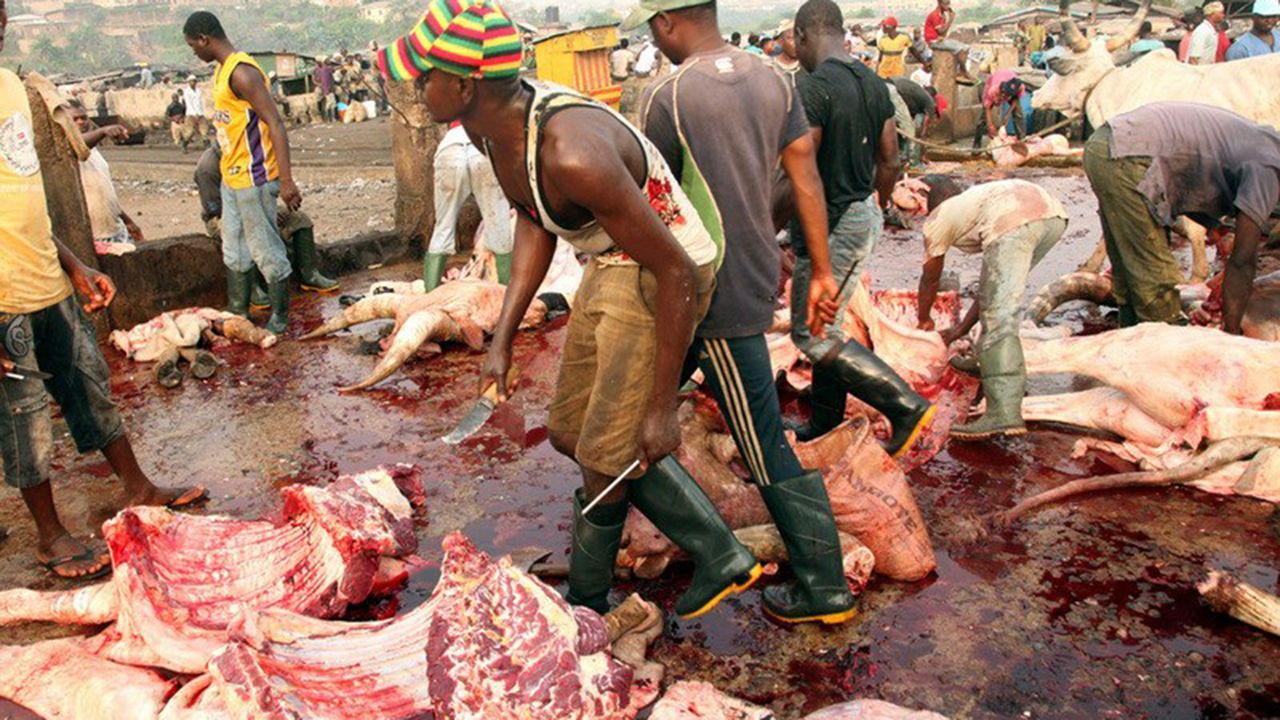Special Report: Nigerian abattoirs and environmental pollution

By Bisola Adeyemo
The unhygienic conditions of abattoirs in Nigeria have directly and indirectly threatened or endangered the health of residents and the environment in general because animal waste such as blood, bones, intestinal content, tissues, hides, and skin are scattered in huge piles around the abattoirs.
An abattoir is a premise approved and registered by the controlling authority for hygienic slaughtering and inspection of animals, processing, and effective preservation and storage of meat products for human consumption.
The poor state of most abattoirs in Nigeria focuses more on meat processing plants, ineffective meat inspection service, and the resultant risk of consuming unwholesome meat have been issues of public health and global environmental concerns. This is because most abattoirs are in an unacceptable condition, with the beef mostly dumped on unhygienic spaces which attract all kinds of contamination.
These issues have become more prominent and less attended to in Nigeria because of lack of institutional and regulatory frameworks, In addition to the lack of training and education for core abattoir stakeholders and managers which is another serious challenge facing abattoirs in Nigeria.
Abattoir operations produce a characteristic highly organic waste with relatively high levels of suspended solid, liquid, and fat.
What is the way forward?
In the production of animals for food, more attention should be focused on the interactions between animal production and the environment, realizing environmental conditions and structures in animal production, which not only seek to produce wholesome and safe animal food but should also avoid environmental pollution and the associated human health risks.
The abattoir should not be located close to dwellings, schools, churches and other public or commercial buildings due to possible nuisance from noise, smell congestion etc. Likely future commercial and residential developments should also be taken into account.
Furthermore, adequate water supply is essential in all abattoirs, well or bore water will also be suitable, provided the water meets drinking water standards.
There should be sufficient spaces available to bury inedible wastes and condemned animals and provide for compost stacks, hide drying frames, etc.
Connection to a public electricity supply is desirable especially if chilling of carcasses is being considered or on site water pumping is required.
Abattoir managers should undergo basic training and certification in Infection, Prevention, and Control (IPC) protocols. These protocols would allow them to understand how to ensure the environment where animals are killed is infection-proof and ensure that those who work at the abattoirs, as well as those who come there to purchase meat, are practicing protective techniques that will prevent infections from spreading.
